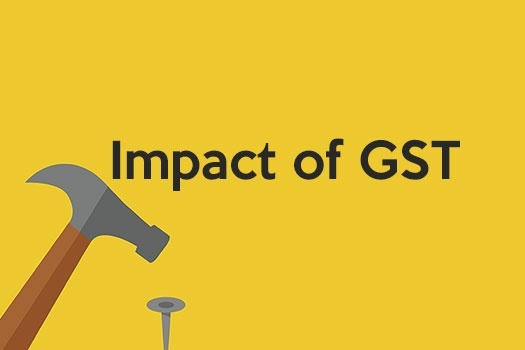While there is a buzz amongst people that GST will increase the prices of commodities, in case of Real Estate GST is simply a game changer. GST is actually expected to bring down the project cost for developers, this would mean homes would, in fact, become cheaper as a GST impact on Real Estate.
Before GST there used to be many taxes and duties that a developer had to pay on the procurement side, such as VAT, Service Tax, Customs Duty, Central Sales Tax, Excise Duty, Entry tax, etc. These are subsequently passed on to the final pricing of the units and, thereby, to the buyer. As GST proposes to roll multiple taxes into one, the cost of construction will come down. GST impact on Real Estate will bring more liquidity into the market, bring down the cost of properties and boost sales.
There are a lot of products that developers procure for construction of their projects, on which there used to be double taxation in the earlier taxation system. The cost developers used to bear for these were around 20 to 25 per cent of the cost of materials they were buying. So, with the GST rate, between 12 and 18 per cent, it will reduce the cost of production for developers. This will be good news for buyers, as developers will be able to pass on certain benefit to the buyers.
For developers, the actual tax effect will be lower than the existing one mainly due to the input tax credit on raw materials that builders get against payment of taxes on inputs like steel and cement.
Moreover, the increase in tax is very less for major inputs. For Example: the indirect taxes on steel were around 17 per cent and that has now come to 18 per cent under GST, similarly for cement the taxes totalled to nearly 24 per cent which now has been standardised at 28 per cent. The GST rate for work contracts has also been fixed at 12 per cent.
GST impact on Real Estate is expected to be a sentiment booster for the industry and will seek to revive buyer and investor interest by bringing more transparency in taxation.










